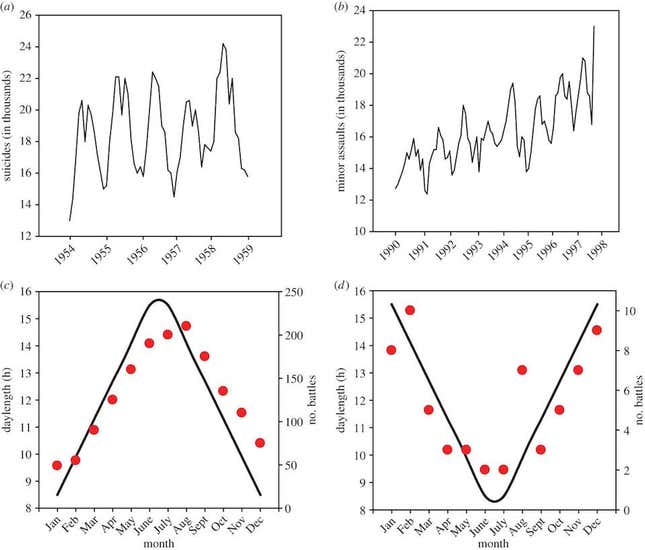Between air conditioners, radiators and thermostats that take the guesswork out of climate control, we rarely have to conform to natural seasons anymore. Technology allows us to make the indoors feel like summer all year round.
But living in “eternal summer” could harm our health and alter our behavior, shows a new report from researchers at the University of Aberdeen as well as other institutions around the world.
Our bodies take cues from the environment, so tricking them into thinking that it’s summer all year long could impede our natural efforts to protect ourselves from seasonal ailments. For example, our genes evolved to produce more protein during flu season to fight off the virus. Without such seasonal cues, we may be more prone to infectious diseases, increasing our reliance on shots and vaccines.
The paper, published on Oct. 14 in the Proceedings of the Royal Society B, also notes that disconnecting ourselves from natural seasons could have psychological and behavioral effects. Many human conditions follow seasonal patterns, such as births; immunities and diseases. Suicide rates tend to peak in late spring and early summer, as does aggression and violent behavior.

Our ability to control the temperature in home, cars, and workplaces also distances humans from the impact of global warming, the study notes. If it gets too warm, we just crank up the air conditioner and put the underlying issue of climate change out of our minds. That, too, may make us more vulnerable.
